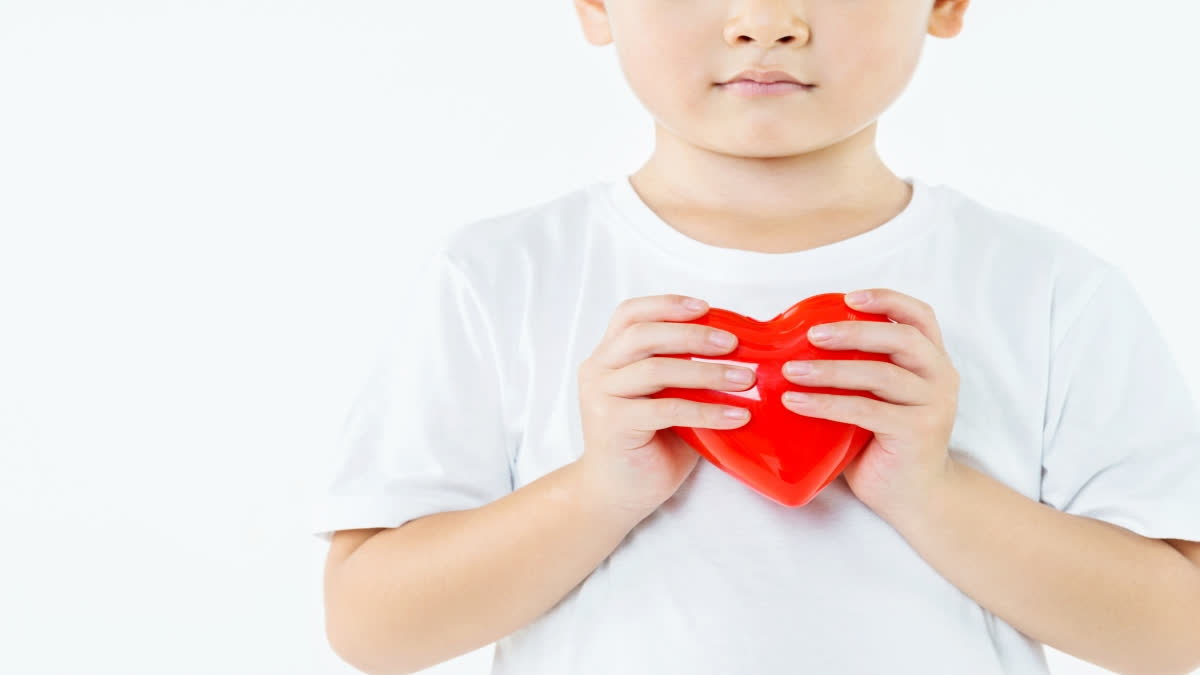Hyderabad:Orphanages, which serve as shelter homes for children who either don't have parents or have been left by them, play a significant role in the lives of countless young individuals who often lack the fundamental parental love and support.
For these children, the absence of a stable and nurturing family environment can have far-reaching consequences. Many children across the world are eagerly waiting for caring families to step forward and provide them with the love and stability that are essential for their development. These children hope for adoption, a chance to experience the warmth of a family and the opportunities that come with it.
In recognition of this global need, World Adoption Day was established in 2014 by Hank Fortener and his team at Adopt Together, a non-profit crowdfunding platform that aims to bridge the gap between children in need of loving homes and families eager to adopt.
The United States stands as a prominent player in the realm of adoption, with 75% of adoptions taking place domestically. Notably, the number of international adoptions has been declining, while domestic adoptions are on the rise. These adoptions are divided into roughly equal parts between private adoptions and those from foster care.
Adoption process-
The process in India, overseen by CARA, includes several critical steps:
Registration: Prospective adoptive parents must register with authorized agencies, such as recognised Indian Placement Agencies (RIPA) and Special Adoption Agencies (SAA).
Home study and counseling: A social worker from the registration agency visits the prospective adoptive parent's home to assess their ability to provide a nurturing environment for the child. This process may include counseling to understand the strengths and weaknesses of the prospective parents.
Referral of the child: Once the home study and counseling are completed and a child becomes available for adoption, the agency informs the prospective parents.
Acceptance of the child: If the parents are comfortable with the child, they sign a document confirming their acceptance.
Filing of petition: All relevant documents are given to an advocate who prepares a petition presented in court. Upon submission, adoptive parents sign the document in front of a court officer.
Pre-adoptive foster care: This stage involves understanding the child's habits and needs, often with input from nursing staff who previously cared for the child. It occurs after the document is signed in court.
Court order: After the court reviews the case and confirms its compliance with regulations, the judge issues an adoption order.
Follow-up: Reports on the well-being of the child post-adoption are submitted to the court, with these follow-ups potentially extending for 1-2 years after adoption.
CARA's eligibility criteria for parents seeking to adopt a child in India include requirements related to physical, mental, emotional, and financial stability. There are also guidelines for the age of adoptive parents, depending on the gender and age of the child being adopted. These criteria aim to ensure that adopted children find loving and stable homes.
Adoption Data in India-India has grappled with unique challenges and opportunities in the adoption landscape. The Central Adoption Resource Authority (CARA), a statutory body under the Ministry of Women & Child Development, serves as the nodal agency responsible for the adoption of Indian children, both within the country and internationally.
According to CARA's data, in the year 2021-22, there were 2,991 in-country adoptions in India, a slight decrease from the previous year's 3,142 adoptions. This decline marks a trend since 2019-20, with year-on-year reductions in the number of in-country adoptions. A similar pattern is observed in inter-country adoptions, which decreased from 417 in the previous year to 414 in 2021-22.
The low adoption rates in India can be attributed to deeply ingrained societal issues, including considerations of caste, class, and genetics, which have historically influenced attitudes toward adoption. Nevertheless, a noticeable shift is occurring, as there is now a waiting list of prospective adoptive parents, marking a significant change in attitudes toward adoption.
Despite this shift, the magnitude of the issue remains striking. India is estimated to have approximately 29.6 million stranded, orphaned, and abandoned children, but only a small fraction, as per CARA, make it to institutionalised care, and even fewer, ranging from 3,000 to 4,000, are adopted annually. As of July 2022, over 16,000 prospective parents in India are eagerly waiting for adoption referrals, but the number of legally available children for adoption falls far short of this demand.
Read More
- In 3:2 majority verdict, SC refuses the right of adoption to queer couples
- Bombay HC issues notice to MHA on adoption agency's plea for issuance of passport to 1-yr-old abandoned Afghani child
- Maharashtra's Sangli sees unique 'exchange-adoption' within family
